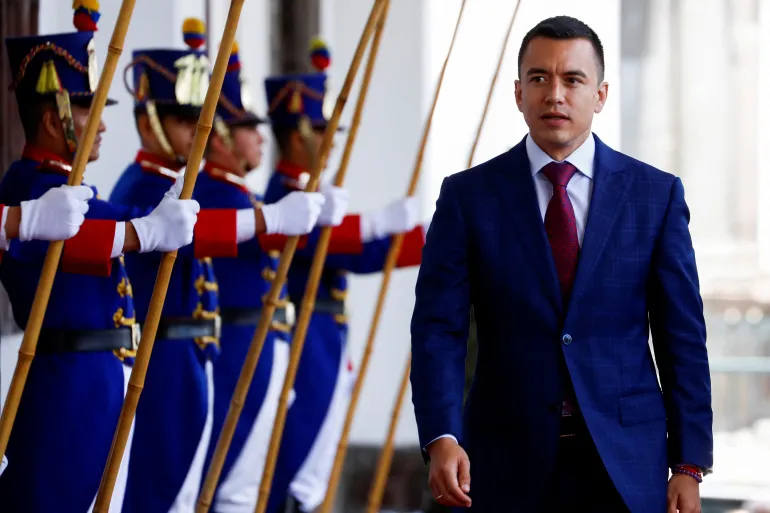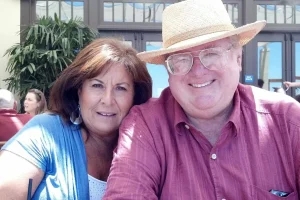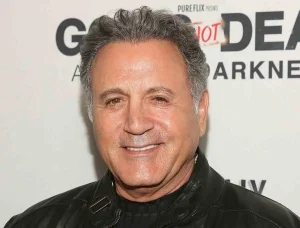Ecuador’s Conservative President and Leftist Lawyer Head to Runoff.
Ecuador will soon determine its next president in a crucial runoff election, as conservative incumbent Daniel Noboa and leftist lawyer Luisa González advanced from a crowded field of 16 candidates. The upcoming runoff, scheduled for April 13, 2025, is a continuation of the country’s high-stakes election, following Noboa's victory in the October 2023 snap election that led to his brief 16-month presidency. Both candidates are now campaigning for a full four-year term, with a central promise to address the growing crime wave that has plagued the country in recent years.
Rise in Gang Crime
The rise in violent crime in Ecuador has been closely linked to the cocaine trade, fueled by the trafficking activities of neighboring Colombia and Peru. In the face of escalating violence, many Ecuadorians are questioning whether Noboa, who inherited a fortune built on the banana trade, has done enough to stem the crisis. Conversely, González, a protégé of Ecuador's influential former president Rafael Correa, presents an alternative vision of leadership.
With 80% of the vote tallied on Sunday, preliminary results showed that Noboa had secured 44.43% of the vote, with over 3.71 million votes. González, a former legislator and lawmaker, was trailing closely behind with 44.17%, totaling more than 3.69 million votes. The remaining 14 candidates were far behind in the race.
Mandatory voting in Ecuador meant that 83% of the eligible 13.7 million voters cast their ballots, signaling the importance of the election to citizens. Despite a drop in the homicide rate during Noboa's presidency, many Ecuadorians are increasingly fearful of organized crime, such as kidnappings and extortion, which have continued to plague their communities.
"I don’t believe he can fix anything in four more years," said Marta Barres, a 35-year-old voter from Guayaquil. "I’m supporting González because I believe she can lower crime and improve the economy."
Pushing the Boundaries of Laws and Governance Norms
During his tenure, Noboa's crime-reduction efforts, such as declaring internal armed conflict in January 2024 to mobilize the military against gangs, have been met with mixed reactions. His controversial methods, such as approving the raid on the Mexican embassy in Quito to capture fugitive former Vice President Jorge Glas, have raised concerns about his respect for legal and governing norms. However, for some, his tough stance against organized crime remains a compelling reason to support him. "Noboa is the only one tackling organized crime head-on," said retiree German Rizzo, who voted to reelect the president.
On the other hand, González, who had served in various government positions during Correa’s presidency, has presented herself as a figure capable of restoring Ecuador’s social programs while addressing the crime wave. The strong performance of González, who was largely unknown to the public until Correa’s party selected her as the candidate for the snap election, has been hailed as a win for his political movement.
Quito’s University of the Americas professor Maria Cristina Bayas called the results "a triumph" for Correa’s party, which managed to secure a more significant share of the vote than many had anticipated. Esteban Ron, a political expert at the International University SEK in Quito, suggested that Noboa's campaign might now face the challenge of reaching new voters while attempting to address the issues that have defined his first term.
Architecture student Keila Torres, who was undecided about her vote, reflected the sentiments of many Ecuadorians disillusioned by the persistent crime problem. “If I could, I wouldn’t be here,” she said. “Things are not going to change.”
With the stage set for the final showdown, both candidates will need to convince voters that they can effectively combat the violence that has rocked the country and reshape Ecuador's future.





















